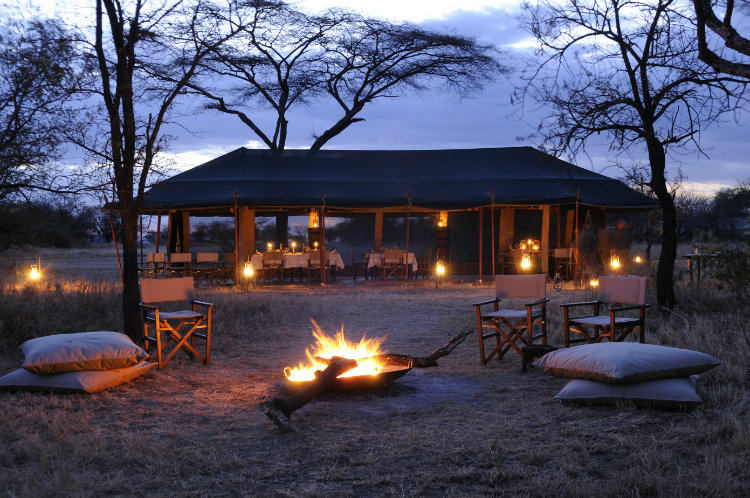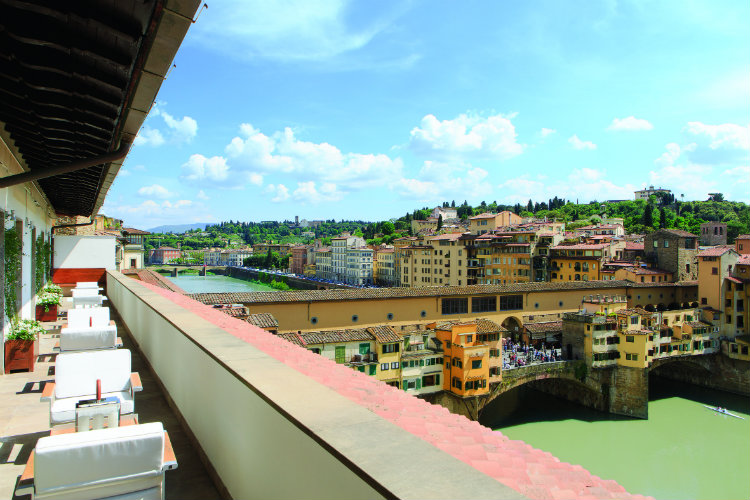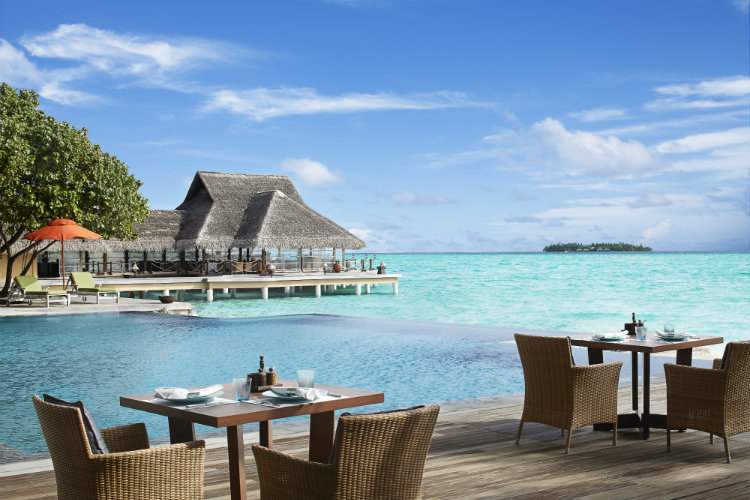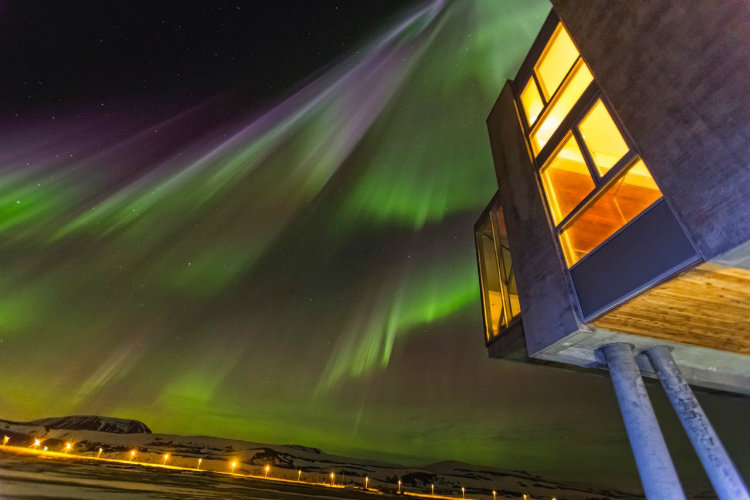Here are five reliable ways you can lighten your carbon footprint while travelling around the world.

Responsible travellers can put their minds at ease when booking a carbon-neutral hotel. While the zero emissions movement (which aims to offset carbon emissions for a sustainable future) is building gradually, there are still a variety of places on offer, from the roving Olakira Camp (olakira.asiliaafrica.com) in the Serengeti to Kong Arthur (arthurhotels.dk/hotel-kong-arthur) in Copenhagen, part of Arthur Hotels, which was the first hotel group in the world to go carbon-neutral.
As well as following the standard guidelines for certified LEED (Leadership in Energy and Environmental Design) hotels, such as using low energy light bulbs, locally-sourced menus, recycling and linen reuse programmes and a fleet of bicycles, Kong Arthur owner and CEO Kirsten Brøchner sees to it that the hotel’s impact extends far beyond its walls – all the way to Africa, in fact, where the hotel works on a well building project – in the hopes of setting a new ‘green hotel’ norm.
‘We have to take care of where we live,’ says Brøchner, whose employees brainstorm environmental initiatives in off-site workshops, cook for the homeless and volunteer at youth organisations. Going one step further to involve guests, Kong Arthur and others like Talbott Hotel (talbotthotel.com) in Chicago and Lenox Hotel (lenoxhotel.com) in Boston invite travellers to offset their trip by purchasing carbon credits, which deliver funding to wind farms and reforestation projects.

Hotels are making it easier for guests to ditch the car (and the guilt of a heavy carbon footprint) by offering bicycles, complimentary shuttle services and public transit packages. Hyatt Regency properties (regency.hyatt.com) around the world, including Sarasota, Perth, Kathmandu and Sharm El Sheikh, offer free shuttles to the airport and around town so you can forget about shelling out money for something that’s becoming increasingly unnecessary on vacation.
Among the crusaders of the new two-wheeled trend in travel, Fairmont (fairmont.com), Kimpton (kimptonhotels.com) and Lungarno Collection (lungarnocollection.com/en) are inspiring guests to experience how a car-free itinerary can lead to great off-the-beaten-path adventures – be it pedalling up the slopes of Mount Kenya on Fairmont Kenya Safari Club’s BMW Cruise bicycles, exploring San Francisco Bay with Kimpton’s PUBLIC bikes, or taking Hotel Lungarno’s city cruisers and discovering under-the-radar neighbourhoods on the outskirts of Florence.
Riding the rails to a remote destination can be half the thrill of the journey, and is becoming a breeze to plan with the help of tourism boards like those representing the Lake District (lakedistrict.gov.uk) and Los Angeles (discoverlosangeles.com), which have dedicated car-free information pages. Some hotels have even created overnight packages around public transportation – Water’s Edge Resort in Connecticut offers the Shoreline Express Package (watersedgeresortandspa.com/specials) and the Brunswick Hotel devised the DownEaster Train to Maine deal (thebrunswickhotelandtavern.com/specials_packages) – and more will follow suit if travellers create the demand.

These days, there is no reason why a hotel restaurant can’t have an on-site garden to source herbs and organic produce for a seasonal menu. If it isn't immediately clear from website photos, there should at least be some mention of local and fresh ingredients. That said, responsible hotel companies like Marriott (marriott.com), Starwood (starwoodhotels.com) and Wyndham (wyndham.com) don’t always flash the facts of an eco-friendly kitchen on the homepage or even their dining section, so it’s best to call the front desk to find out if the hotel has an edible garden, follows sustainable seafood guidelines or abides by the 100-mile diet.
Aside from lower carbon emissions and less food waste (UK hotels waste 174,165 pounds of food every year, according to Green Hotelier – greenhotelier.org), a farm-to-table approach means tastier food and an enlightening culinary adventure, whether you’re savouring honey from Waldorf Astoria’s (waldorfnewyork.com) rooftop beehives in New York City or biking to the Poseidonion Grand Hotel’s (poseidonion.com) farm on the Greek isle of Spetses and literally picking your supper.

Seek out hotels that give guests the opportunity to get hands-on in the community. ‘Authentic travel is one of the biggest trends in travel and is no longer a niche option,’ says Sasha Chisholm, head of marketing at Responsible Travel (responsibletravel.com), a platform for tour operators and accommodation owners committed to sustainability. ‘We know that authentic travel is only possible when local people and places are treated with respect and have proven the link between authentic and responsible tourism.’
In Yucatán, the Hacienda Chichen resort (haciendachichen.com) founded a non-profit that provides education, healthcare and nutrition programmes for rural Maya communities. Through the green resort, which is 99 percent staffed by local Maya people, guests can volunteer to teach at the non-profit or help donate food and supplies to students at the Maya Children Boarding House.
Eco-voluntourism doesn’t have to be very time-consuming. In between surfing and yoga, consider planting trees with the Harmony Hotel (harmonynosara.com) to prevent beach erosion on Costa Rica’s Nicoya Peninsula or building a new coral garden in the Maldives through Taj Exotica’s reef rehabilitation program (reefrecharge.com). If you’d rather unwind than work, opt for hotels that make it a no-brainer to do something good simply by booking a room at a place like The N/a’an ku sê Lodge (naankuselodge.com), where all profits support its wildlife sanctuary and environmental conservation foundation in Namibia.

A rise in responsible tourism and a growing outdoor recreation industry means there is now an abundance of outfitters offering eco-conscious travellers a trip to the great outdoors. But a guided expedition isn’t always cheap or doable over a long weekend. A hotel that doubles as a base camp for adventure and gives guests a gentle nudge to reconnect with the natural world is typically one that can be trusted to take care of the environment.
Situated near a Unesco World Heritage site, under the emerald wisps of the northern lights, Iceland’s new sustainable Ion Luxury Adventure Hotel (ioniceland.is) is a perfect launch pad for exploration; you can go diving in Þingvellir National Park, whitewater rafting in Hvítá River and glacier walking. In Arizona, Amara Resort & Spa (amararesort.com) encourages guests to get lost in the red rocks of Sedona on 100 trails, and the Hike House (thehikehouse.com) offers history and geology talks, overnight packages, and complimentary hiking clinics.
When guests of the Jicaro Island EcoLodge (jicarolodge.com) aren’t lounging in their private two-story casitas, they’re birdwatching in a forest canopy, kayaking around the islands or trekking up Mombacho volcano. Here in Nicaragua, Jicaro also happens to oversee vital local projects on education and sustainable food and water filtration systems. ‘When you travel like a local on a holiday rooted in local cultures and ways of life, you meet real experts, local people who love where they are, who want to keep these places special,’ says Chisholm. ‘This ensures a more authentic, deeper experience and allows travellers to get beneath the surface of a destination.’